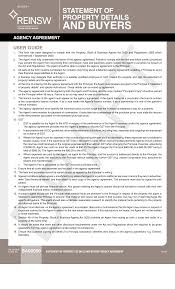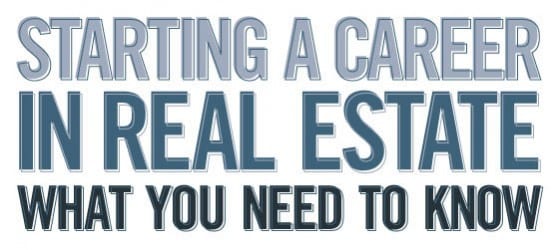
There are several steps required to become an agent in Florida. First, you must complete the pre-licensure education and pass an exam. Photocopies of all documents you have to Florida Division of Real Estate are also required.
Pre-license education
Pre-licensing education courses are required for anyone who wants to be a Florida realty agent. These courses will teach you about Florida real estate laws, ethics, and common terminology. The course won't teach you how to market and write contracts. It will also not teach script writing. Pre-license programs won't teach your how to network and socialize.
There are exceptions to the pre-license course requirement, though. Active members of the Florida Bar and students who have majored in real estate are exempt. All others must complete the 63-hour prelicense course approved by Florida Real Estate Commission. This course is available online and in-person.

Exam requirements
Obtaining a real estate license in Florida can be an arduous process. This requires hours of study and extensive studies. It is not an easy exam, but it can be done with the right preparation. Florida has a lot of resources to help prepare you for the exam. These resources include mock exam questions and full past papers. These are available online, as well as through training providers.
Before taking the real estate exam, make sure to complete 63 hours of pre-licensing education. This education should cover all topics required by Florida Real Estate Commission. After passing the test, you can activate your license, and begin working in the field.
Potential earnings
The earning potential of a real estate agent in Florida is unlimited. To earn this much, however, you must have a Florida realty license. The salary for a Florida real-estate agent is dependent on the area. The salary in some areas is higher than the others. In addition, the commission split between the agent and the broker varies widely.
Florida's average annual real estate agent salary of $55,000 is The highest earners may earn up to $100,000 a year. If you're a rookie agent, your earnings may be lower. Beginning agents typically earn about $35,000 per year. However, this can rise significantly as you gain experience.

Salary
The average real estate commission in Florida for selling a house is around five to six percent. This includes both the seller's commission and the buyer's commission. The commissions paid to an agent for a home that sells at $400k are approximately $20 to $25k.
Florida is a state where the average salary for a real-estate agent is around $40,000, but it can vary depending on location, experience and level. The state ranks 42nd in the country for the average salary of real estate agents. According to an Indeed survey, an entry-level agent in real estate earns an average salary $36,357 while a senior agent makes an average $78,580. Over the next five year, Florida's average real estate agent salary is expected to increase by eleven percent.
FAQ
Do I need to rent or buy a condo?
If you plan to stay in your condo for only a short period of time, renting might be a good option. Renting lets you save on maintenance fees as well as other monthly fees. The condo you buy gives you the right to use the unit. You can use the space as you see fit.
How can I get rid Termites & Other Pests?
Termites and other pests will eat away at your home over time. They can cause serious destruction to wooden structures like decks and furniture. You can prevent this by hiring a professional pest control company that will inspect your home on a regular basis.
How much money do I need to purchase my home?
It depends on many factors such as the condition of the home and how long it has been on the marketplace. Zillow.com reports that the average selling price of a US home is $203,000. This
Can I afford a downpayment to buy a house?
Yes! Yes. There are programs that will allow those with small cash reserves to purchase a home. These programs include government-backed loans (FHA), VA loans, USDA loans, and conventional mortgages. You can find more information on our website.
What can I do to fix my roof?
Roofs can burst due to weather, age, wear and neglect. Minor repairs and replacements can be done by roofing contractors. For more information, please contact us.
Which is better, to rent or buy?
Renting is generally cheaper than buying a home. It is important to realize that renting is generally cheaper than buying a home. You will still need to pay utilities, repairs, and maintenance. A home purchase has many advantages. For instance, you will have more control over your living situation.
How many times do I have to refinance my loan?
This is dependent on whether the mortgage broker or another lender you use to refinance. In both cases, you can usually refinance every five years.
Statistics
- The FHA sets its desirable debt-to-income ratio at 43%. (fortunebuilders.com)
- Some experts hypothesize that rates will hit five percent by the second half of 2018, but there has been no official confirmation one way or the other. (fortunebuilders.com)
- This seems to be a more popular trend as the U.S. Census Bureau reports the homeownership rate was around 65% last year. (fortunebuilders.com)
- Private mortgage insurance may be required for conventional loans when the borrower puts less than 20% down.4 FHA loans are mortgage loans issued by private lenders and backed by the federal government. (investopedia.com)
- 10 years ago, homeownership was nearly 70%. (fortunebuilders.com)
External Links
How To
How to locate an apartment
Finding an apartment is the first step when moving into a new city. This takes planning and research. This involves researching neighborhoods, looking at reviews and calling people. You have many options. Some are more difficult than others. These are the steps to follow before you rent an apartment.
-
It is possible to gather data offline and online when researching neighborhoods. Online resources include Yelp and Zillow as well as Trulia and Realtor.com. Local newspapers, landlords or friends of neighbors are some other offline sources.
-
Read reviews of the area you want to live in. Yelp and TripAdvisor review houses. Amazon and Amazon also have detailed reviews. Local newspaper articles can be found in the library.
-
Call the local residents to find out more about the area. Talk to those who have lived there. Ask them what they loved and disliked about the area. Ask for their recommendations for places to live.
-
Be aware of the rent rates in the areas where you are most interested. You might consider renting somewhere more affordable if you anticipate spending most of your money on food. On the other hand, if you plan on spending a lot of money on entertainment, consider living in a more expensive location.
-
Find out information about the apartment block you would like to move into. It's size, for example. What price is it? Is it pet-friendly? What amenities do they offer? Are you able to park in the vicinity? Are there any special rules for tenants?